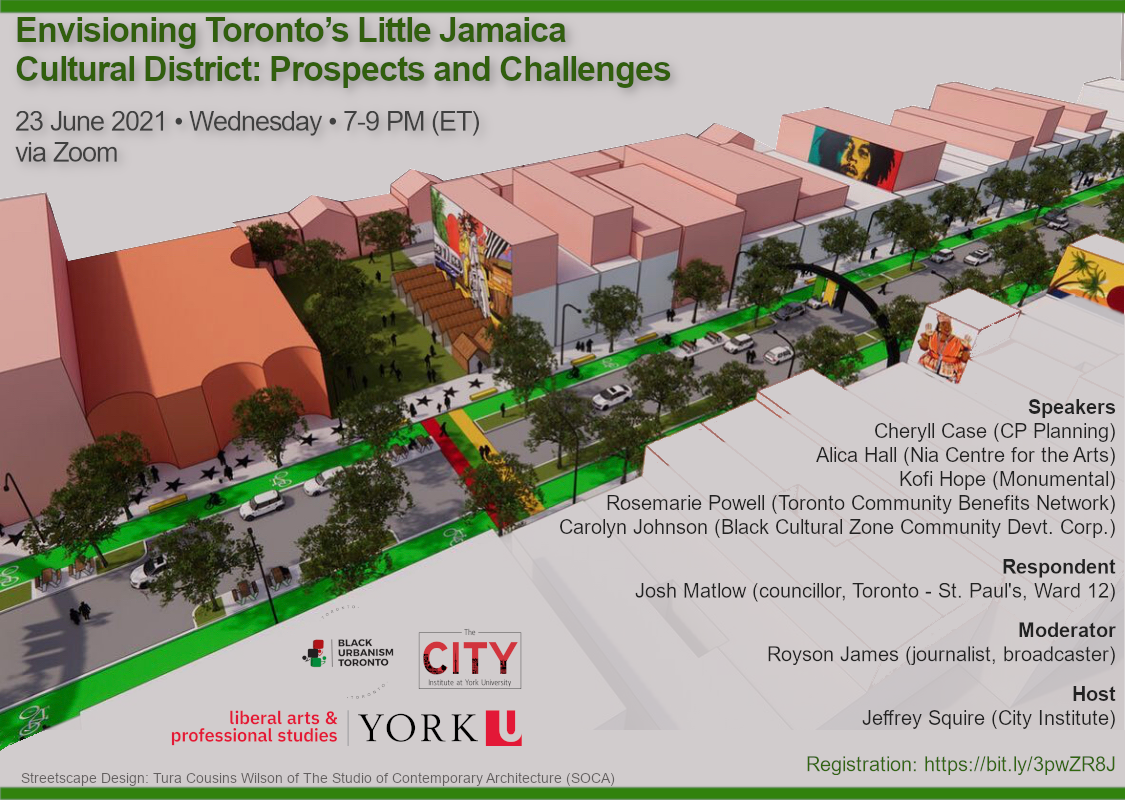
Envisioning Toronto's Little Jamaica Cultural District: Prospects and Challenges
Toronto's Little Jamaica has over the course of more than five decades become the centre of Black Canadian economic, cultural and social expression. In this sense, it can be viewed alongside a host of other ethnic neighbourhoods such as Little Italy, Greektown, Little Portugal, Koreatown, Little India, and others that have together served Toronto's attempts to market itself as a multicultural metropolis and, at a wider level, Canada's projection of itself on the world stage as a modern, diverse and welcoming society. The future of this neighbourhood, unique in Black Canadian history, is now uncertain, however. The adverse impacts of ten years of LRT construction, coupled with the COVID-19 pandemic, have resulted in the displacement of community organizations and more than 100 businesses. More businesses are expected to close their doors within the next twelve months.
A City of Toronto motion passed in October 2020 outlines short, medium, and long-term actions including designating Little Jamaica as Toronto's first Cultural District. A Cultural District is a novel concept for Toronto and its scope has yet to be defined. With the City having launched the consultation period in which the cultural district concept can be discussed, this webinar will serve as an occasion to explore the substantive potential that the designation of Cultural District holds for Little Jamaica in socioeconomic, cultural, and legal contexts. Place-makers and community builders in Little Jamaica were invited to engage with those who have been involved in similar initiatives elsewhere, to learn from their successes, mistakes, and seek recommendations on next steps.
Speakers included Cheryll Case (founder & principal urban planner, CP Planning), Alica Hall (Executive Director, Nia Centre for the Arts), Kofi Hope (Co-founder & CEO, Monumental), Carolyn Johnson (CEO, Black Cultural Zone Community Development Corporation), and Rosemarie Powell (Executive Director, Toronto Community Benefits Network).
Josh Matlow, city councillor for Ward 12, Toronto-St. Paul's, gave his response on the issue.
Journalist Royson James moderated the discussion, while Prof. Jeffrey Squire of City Institute hosted the event.
The event was co-presented by the City Institute of York University and Black Urbanism TO and sponsored by York University Faculty of Liberal Arts and Professional Studies through the Anti-Black Racism Initiatives Fund.

